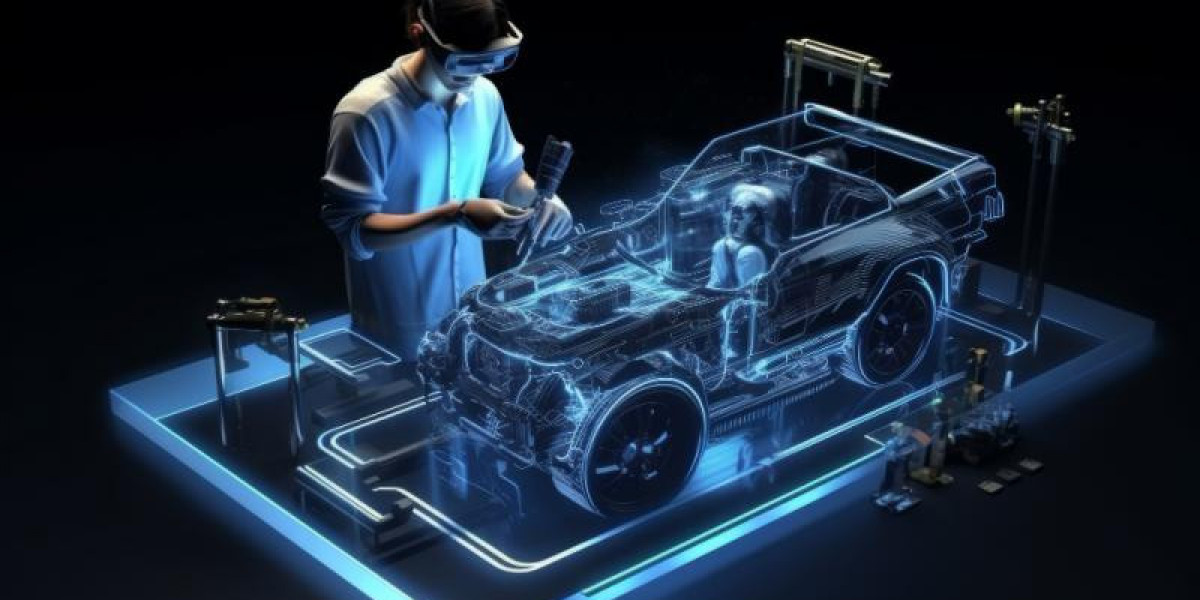The automotive industry is undergoing a seismic shift. Once dominated by mechanical engineering, it is now increasingly driven by software and digital technologies. Central to this transformation are automotive software development services, which are reshaping how vehicles are designed, manufactured, and operated. This article explores the critical role of these services in the modern automotive landscape, highlighting key trends, challenges, and future directions.
The Evolution of the Automotive Industry
Traditionally, the automotive industry was synonymous with heavy machinery and mechanical engineering. However, the past two decades have seen an unprecedented integration of electronic systems and software. This shift is driven by several factors:
Consumer Demand for Advanced Features: Today's consumers expect vehicles to be more than just modes of transportation. Features like infotainment systems, advanced driver-assistance systems (ADAS), and autonomous driving capabilities are now in high demand.
Regulatory Requirements: Governments worldwide are imposing stricter safety and environmental regulations, necessitating the development of sophisticated software solutions to ensure compliance.
Technological Advancements: The rapid advancement of technologies such as artificial intelligence (AI), machine learning, and the Internet of Things (IoT) has opened up new possibilities for automotive innovation.
What Are Automotive Software Development Services?
Automotive software development services encompass a wide range of activities related to the creation, implementation, and maintenance of software systems within vehicles. These services can be broadly categorized into several areas:
Embedded Systems Development
Embedded systems are at the heart of modern vehicles. These systems control everything from engine performance to braking systems and are crucial for ensuring vehicle safety and efficiency. Automotive software development services involve the design and development of these embedded systems, ensuring they meet stringent performance and reliability standards.
Infotainment Systems
Infotainment systems are becoming a key differentiator for automotive brands. These systems provide entertainment, navigation, and connectivity features, enhancing the driving experience. Developing these systems requires expertise in user interface design, multimedia processing, and connectivity protocols.
Advanced Driver-Assistance Systems (ADAS)
ADAS technologies are designed to enhance vehicle safety by automating and improving various driving tasks. These systems rely heavily on software to process data from sensors and cameras, making real-time decisions to assist the driver. Automotive software development services are crucial for developing and integrating these complex systems.
Autonomous Driving
The race to develop fully autonomous vehicles is perhaps the most exciting aspect of modern automotive innovation. Autonomous driving systems require an intricate web of software and hardware, capable of processing vast amounts of data in real time. Developing these systems involves expertise in AI, machine learning, sensor fusion, and real-time data processing.
Vehicle-to-Everything (V2X) Communication
V2X communication enables vehicles to communicate with each other and with infrastructure such as traffic lights and road signs. This technology is essential for the development of smart cities and improved traffic management. Automotive software development services play a vital role in creating the communication protocols and software necessary for V2X systems.
The Impact of Automotive Software Development Services
The integration of sophisticated software into vehicles has far-reaching implications for the automotive industry and beyond.
Enhancing Vehicle Performance and Safety
Software-driven systems can optimize vehicle performance in ways that were previously unimaginable. For example, engine control units (ECUs) use software to manage fuel injection and ignition timing, maximizing efficiency and reducing emissions. Similarly, advanced braking systems rely on software to ensure optimal braking force in various driving conditions.
Improving the Driving Experience
Modern vehicles offer a plethora of features designed to enhance the driving experience. From intuitive infotainment systems to adaptive cruise control, these features are made possible by advanced software development. By continually improving these systems, automotive software development services contribute to a more enjoyable and convenient driving experience.
Enabling Autonomous Driving
The development of autonomous vehicles is one of the most ambitious goals of the automotive industry. Software is the backbone of autonomous driving systems, enabling vehicles to perceive their environment, make decisions, and navigate safely. Automotive software development services are essential for advancing these technologies and bringing fully autonomous vehicles to market.
Supporting Regulatory Compliance
Automotive software development services also play a crucial role in ensuring that vehicles comply with regulatory standards. This includes developing systems for emissions control, crash detection, and driver monitoring. By staying ahead of regulatory changes, software developers help manufacturers avoid costly fines and recalls.
Challenges in Automotive Software Development
Despite its transformative potential, automotive software development is fraught with challenges.
Complexity and Integration
Modern vehicles can contain over 100 million lines of code, spread across numerous electronic control units (ECUs) and sensors. Ensuring that all these components work seamlessly together is a significant challenge. Software developers must manage the complexity of integrating various systems while maintaining high standards of performance and reliability.
Safety and Security
Safety is paramount in automotive software development. Software failures can have catastrophic consequences, so developers must adhere to rigorous safety standards and testing protocols. Additionally, the increasing connectivity of vehicles raises concerns about cybersecurity. Protecting vehicles from cyber threats is a critical aspect of automotive software development services.
Rapid Technological Change
The pace of technological change in the automotive industry is relentless. Developers must continuously update their skills and knowledge to keep up with the latest advancements in AI, machine learning, and other relevant technologies. This requires ongoing investment in training and development.
Cost and Time Constraints
Developing sophisticated automotive software is both time-consuming and expensive. Manufacturers must balance the need for cutting-edge features with cost and time constraints. Efficient project management and agile development methodologies are essential for meeting these challenges.
The Future of Automotive Software Development
The future of the automotive industry is inextricably linked to software development. Several key trends are shaping the future of automotive software development services.
Electric Vehicles (EVs)
The shift towards electric vehicles (EVs) is gaining momentum. EVs require different software solutions compared to traditional internal combustion engine vehicles. Battery management systems, charging infrastructure, and energy optimization are critical areas of focus for automotive software developers.
Artificial Intelligence and Machine Learning
AI and machine learning are revolutionizing automotive software development. These technologies enable vehicles to learn from data, improving their performance and capabilities over time. From predictive maintenance to autonomous driving, AI is a game-changer for the industry.
Over-the-Air (OTA) Updates
OTA updates allow manufacturers to remotely update the software in their vehicles. This capability is essential for fixing bugs, improving functionality, and adding new features without requiring a visit to the dealership. OTA updates are becoming a standard feature in modern vehicles, necessitating robust software development practices.
Connectivity and IoT
The Internet of Things (IoT) is transforming vehicles into connected devices. This connectivity enables new services such as real-time traffic updates, remote diagnostics, and personalized user experiences. Automotive software development services are crucial for building and maintaining these connected ecosystems.
Collaborative Development
The complexity of modern automotive software necessitates collaboration between multiple stakeholders, including manufacturers, suppliers, and technology companies. Collaborative development models, such as open-source projects and industry consortia, are becoming more common. These models facilitate innovation and ensure that software solutions meet industry standards.
Conclusion
Automotive software development services are at the forefront of the automotive industry's transformation. By enabling advanced features, improving safety and performance, and supporting the development of autonomous and connected vehicles, these services are shaping the future of transportation. Despite the challenges, the potential benefits of automotive software development are immense. As technology continues to evolve, the role of software in the automotive industry will only become more significant, driving innovation and delivering new value to consumers and society at large.








